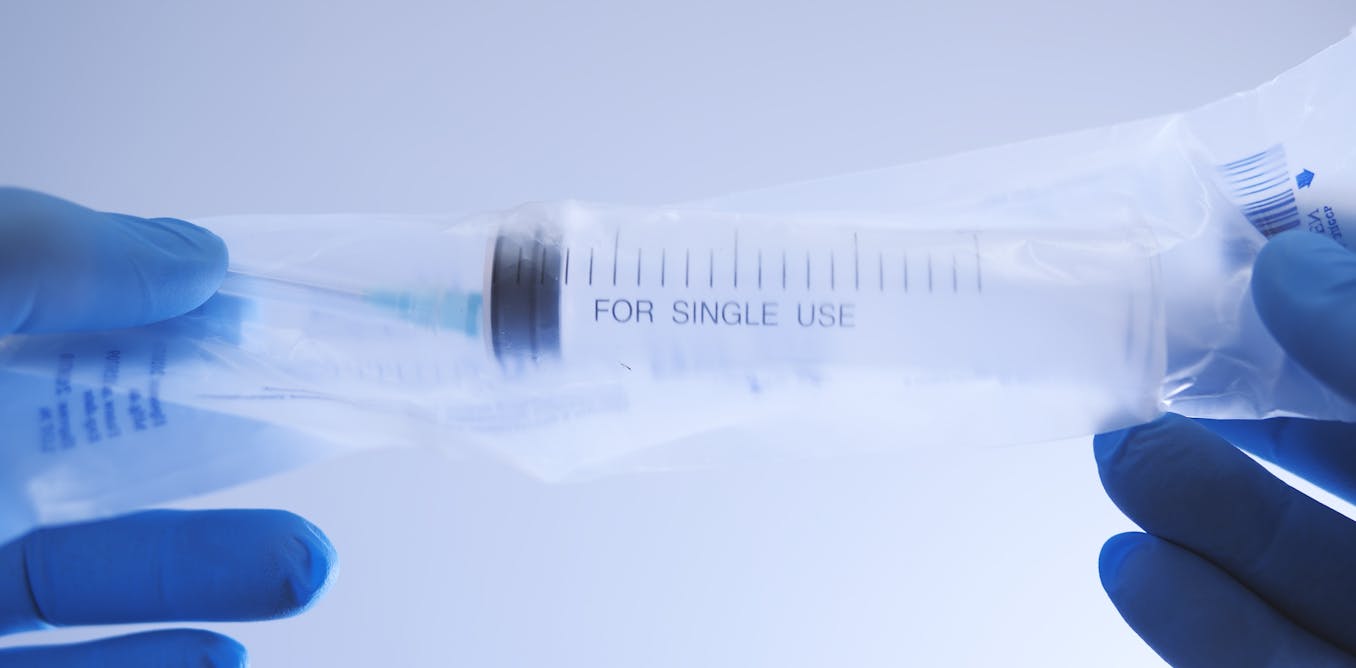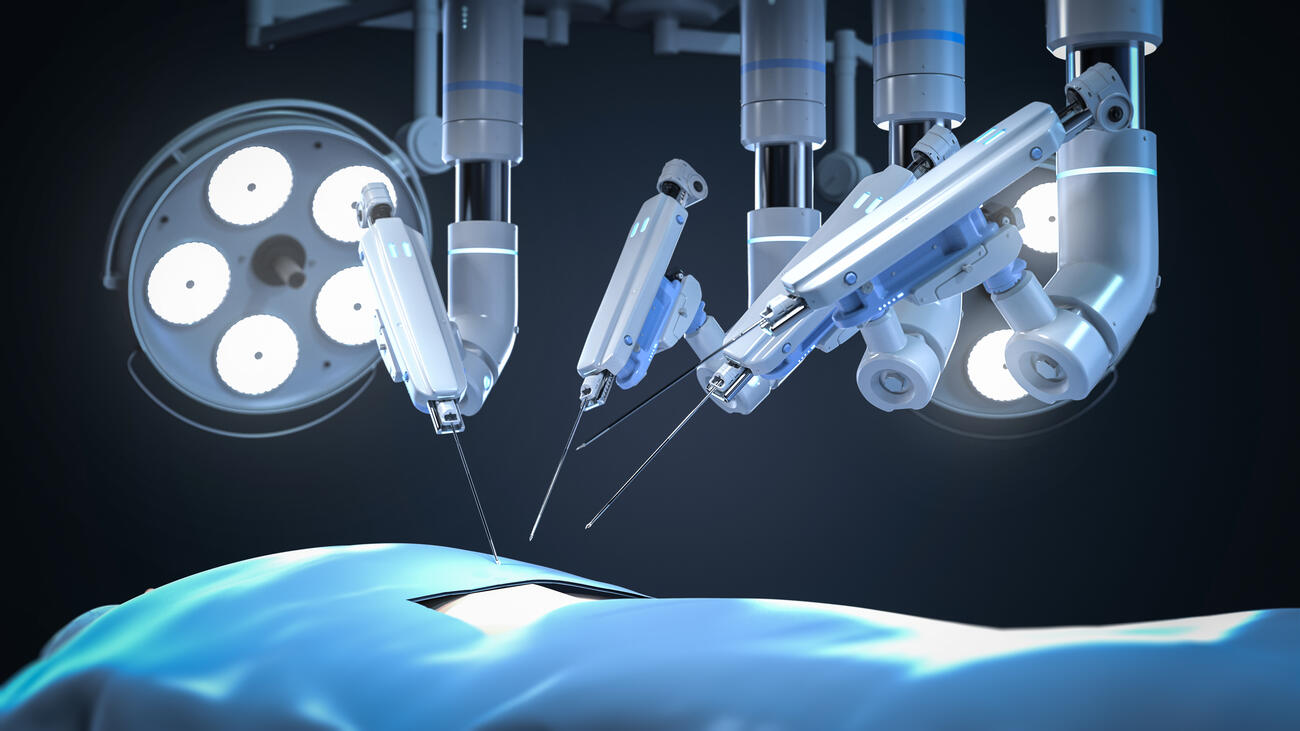Showcasing breakthroughs at HHS Health Innovation for All conference


This year’s HHS Health Innovation for All conference attracted a full house. Those attending this celebration of HHS innovation included clinician-scientists, patients, industry leaders and global experts who partner to develop and market new and better ways to provide care.
Many Hamilton Health Sciences (HHS) doctors and staff are also innovators, who work with partners including industry and government to bring state-of-the-art health-care advancements to patients locally and globally.
“Health Innovation for All is about reimagining how we think about health in our community, considering those who are underserved and how we can create stronger connections between health-care providers and citizens.” — Dr. Ted Scott
Examples of such leading-edge work were showcased on Oct. 24 at the annual Health Innovation for All conference, hosted by HHS and held at McMaster Innovation Park. Those attending included HHS clinician-scientists, patients, industry leaders and global experts who partner to develop and market new and better ways to provide care.

Dr. Ted Scott is HHS’ chief innovation officer. The HHS innovation team organized the conference.
“Health Innovation for All is about reimagining how we think about health in our community, considering those who are underserved and how we can create stronger connections between health-care providers and citizens,” said Dr. Ted Scott, chief innovation officer for HHS, who welcomed attendees.
“Our goal is to continue a dialogue that will enable us to recreate a health-care system that achieves better, more sustainable health-care outcomes, while addressing health equity and diversity in more inclusive ways.”
Key HHS innovations were showcased in three sessions featuring remote home monitoring, artificial intelligence (AI) and connected health systems.
“From virtual recovery programs to predictive analytics that anticipate patient needs, we’re not just improving care in Hamilton – we’re shaping what’s possible for patients everywhere.” — Dr. Marc Jeschke

Dr. Chris Hillis (left), interim vice president, oncology and site executive for HHS Juravinski and Cancer Centre visits with Tracey MacArthur (centre), HHS president and CEO; and Dr. Marc Jeschke, HHS vice president of research and innovation, and chief scientific officer.
“Across our network, teams are harnessing AI to enhance clinical decision-making, designing digital tools that make care safer and more accessible, and pioneering interoperability solutions that connect health records seamlessly across the country,” said Dr. Marc Jeschke, HHS’ vice president of research and innovation, and chief scientific officer.
“From virtual recovery programs to predictive analytics that anticipate patient needs, we’re not just improving care in Hamilton – we’re shaping what’s possible for patients everywhere.”
High-tech support for patients recovering at home
The HHS PROTECT Lab is a leading-edge HHS and McMaster University research lab that studies virtual care and remote home monitoring of hospital patients through its Continuus Health program. Leading the lab are Population Health Research Institute (PHRI) scientist Dr. Michael McGillion, senior scientist Dr. PJ Devereaux, and Professor Emeritus (Oncology) Dr. Mark Levine, a retired HHS oncologist. Based at HHS Juravinski Hospital and Cancer Centre (JHCC), Continuus Health connects patients recovering at home to their hospital care team through take-home technology provided by HHS to monitor how they’re doing, and real-time monitoring by nurses based at the hospital.

Dr. Jeremy Petch (left), director of HHS CREATE (Centre for Data Science and Digital Health) chats with with Professor Emeritus (Oncology) Dr. Mark Levine, a retired HHS oncologist.
The take-home kit comes with a tablet and monitoring tools that let patients check their own vital signs like blood pressure, heart rate and oxygen levels, at home. Their readings are uploaded to the tablet, where the virtual nursing team based at the hospital can monitor their health through the hospital’s electronic medical records system, called Epic.
Remote home monitoring helps reduce readmissions, free up hospital beds, shorten wait times, and improve patient outcomes while supporting patients to recover at home.
Dr. Amaris Balitsky, an HHS researcher and malignant hematologist, presented on remote home monitoring for oncology patients undergoing CAR-T cell therapy, a specialized treatment for patients with certain types of lymphoma.

Dr. Amaris Balitsky, an HHS researcher and malignant hematologist, presented on remote home monitoring for cancer patients undergoing CAR-T cell therapy.
A panel discussion giving patient, provider, and EDI (equity, diversity and inclusion) perspectives on remote patient monitoring included a cardiac patient who recovered from surgery at home, remote home monitoring nurse Shelley Weniger, and HHS health equity specialist Fatima Sheikh.
There was a second panel discussion on HHS strategic priorities and perspectives on the current and future state of remote home monitoring. It featured Anthony Kaul, founder and CEO of Cloud DX home monitoring technology, Dr. Fayez Quereshy, executive vice president, and clinical and site lead at HHS Hamilton General Hospital; and Dr. Levine, who was instrumental in establishing the HHS PROTECT Lab and Continuus Health program.
Advancing with industry innovation
Abdallah El-Falou, co-founder and chief technology officer for Canadian medical technology company Fluid AI Medical, presented on broad applications for AI for prevention of post-surgical gastrointestinal complications.

Abdallah El-Falou, co-founder and chief technology officer for Canadian medical technology company Fluid AI Medical, presented at the conference. Fluid AI Medical is a valued industry partner.
FluidAI is testing its Stream Platform AI system, including its proprietary Origin device, in an international trial with HHS, the primary hospital leading this innovation. Other hospitals in the study are partnering with HHS.
The company’s innovative AI tool can catch signs of life-threatening complications early in patients recovering from certain colorectal, liver and pancreatic surgeries. This tool could also save hospitals hundreds of thousands of dollars by reducing the need for certain medical tests, emergency department visits and readmissions.
A panel discussion focusing on helping health-care organizations adopt new technologies was led by John Vail, director of operations for CanHealth, Chris Boodoo, head of clinical affairs for MIMOSA Diagnostics Inc., and Jovan Matic, director of the health innovation policy branch for the Ontario Ministry of Health.

Leading-edge innovators at the conference included Dr. Reza Mirza, an HHS rheumatologist, internist, innovator and co-founder of the Strello Health AI phone software system.
Better connection, better care
Presenter Dr. Jeremy Petch is director of HHS CREATE (Centre for Data Science and Digital Health). CREATE is staffed with experts in software engineering, AI and data sciences. Petch’s talk emphasized how giving doctors and care teams quick, seamless access to patient data strengthens their ability to deliver care. This session also included a presentation giving a strategic perspective on data and interoperability by Abhi Kalra, executive vice president, Connected Care, Canada Health Infoway.
The panel discussion focused on innovative approaches to empowering patients through portals like HHS MyChart in Epic. With MyChart, patients can securely view their test results, check appointments, enter personal health information and more.
Among the panelists was Paul Brown, an HHS staff member and a patient. “I’m glad to have access to my health information through MyChart, but there’s potential for so much more,” says Brown, who continues his work as HHS’ architecture and data manager while on dialysis and awaiting a kidney transplant. He uses MyChart to coordinate multiple weekly appointments and stay on top of his test results.

Paul Brown is both an HHS staff member and a patient. Brown, pictured at home using the HHS MyChart app, was a member of a panel at the conference, focusing on innovative approaches to empowering patients through portals like MyChart.
Brown envisions an even more powerful future for patient portals with the help of AI. “If we used AI with the same patient data already in Epic, we could automatically generate personalized questions, talking points, and reference materials,” he says. “That way, patients and care teams are working from the same information while enabling more consistent, meaningful conversations about care.”
Joining Brown on the panel were HHS health equity specialist Kamal Babrah, and Mark Caskenette, director of Canadian company Medirex which provides patient identification solutions.
Powered by partnerships
“Here, we believe that success is driven by collaboration, not competition.” — Tracey MacArthur
HHS has significant bench strength when it comes to collaboration and building partnerships, Tracey MacArthur, HHS’ president and CEO, told conference goers.
“Here, we believe that success is driven by collaboration, not competition,” said MacArthur. “That’s palpable when you come to this community and see the spirit of collaboration.”

Dr. Amol Verma from St. Michael’s Hospital gave the opening keynote address.
Keynote speakers were Dr. Amol Verma and Dr. Carolyn Steele-Gray. Verma is a physician and scientist in general internal medicine at St. Michael’s Hospital and the Temerty Professor of AI Research and Education in Medicine at University of Toronto. He’s a health services researcher, studying and improving hospital care using electronic clinical data. Verma co-founded and co-leads GEMINI, Canada’s largest hospital clinical data research network.
Steele-Gray holds a Tier 2 Canada Research Chair in Implementing Digital Health Innovation. She’s a senior investigator at the Science of Care Institute and in the Lunenfeld-Tanenbaum Research Institute at Sinai Health, and an associate professor in the Institute for Health Policy, Management, and Evaluation at the University of Toronto. Steele-Gray’s work focuses on the role of digital health in supporting integrated and person-centred care delivery for patients with complex care needs, applying implementation science theory and approaches, along with evaluation methods to uncover to how best to embed technology into novel delivery models.
Related Posts
link






